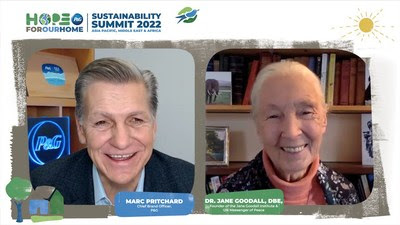Speakers Suggest Ways for Better Protecting Civilians, as Debate Spotlights Attacks in Populated Areas of Yemen, Ukraine
Urban warfare will continue to devastate, kill and maim civilians around the world unless States adopt effective tools to reverse the current trend of impunity and all parties abide by international humanitarian law, briefers told the Security Council today during an open debate on war in cities and protecting civilians.
United Nations Secretary-General António Guterres said accountability for serious violations is essential at a time when 50 million people currently face the dire consequences of urban warfare. When explosive weapons are used in cities, 90 per cent of those affected are civilians, he said, calling on Member States to demonstrate the political will to investigate and prosecute alleged war crimes. “We owe that to the victims and their loved ones — and it is also crucial to serve as a powerful deterrent,” he said.
From targeted attacks on schools from Gaza and Afghanistan to widespread infrastructure damage in Yemen, he said conflict in urban areas has widespread effects. Highlighting prevention and mitigation measures, he said all parties must fully respect international humanitarian law and take steps to minimize incidental civilian harm. Urging States to follow good practices to reduce the humanitarian impact of using explosive weapons in populated areas, he welcomed efforts towards a related political declaration and underlined the Security Council’s vital role, saying that: “I count on all members to acknowledge the challenges of urban warfare, to call for specific protective measures and to use all the tools at their disposal to end tragic and preventable harm to civilians.”
Peter Maurer, President of the International Committee of the Red Cross (ICRC), pointing to rising tolls of death and destruction among city dwellers in conflict situations, declared: “We must do more.” Calling for action in several areas, he said all parties to conflict must work towards compliance with existing civilian protection measures and international law, and States should adopt restrictions on exports of explosive weapons with conditions to prohibit their use in populated areas. Operating on the front lines of urban warfare and addressing the widespread impact, ICRC urges States to take all measures to spare and protect civilians, he said, announcing the launch of a new report on the use of explosive devices in populated areas, including their devastating consequences alongside practical measures on avoidance.
Radhya al-Mutawakel, Chairperson and co-founder of the Mwatana Organization for Human Rights, said that, if there had been real accountability from the start of the war, Yemen would not have become the worst humanitarian crisis it is today. Citing recent documented attacks, among them seven air strikes by the Saudi Arabia/United Arab Emirates-led coalition, she said civilians in Yemen have been made victims by explosive weapons used in populated areas. Since 2014, 800 air strikes, 700 ground assaults, 300 mine explosions, detonations caused by explosive objects and the use of drones and ballistic missiles have killed 3,000 civilians and wounded 4,000 others, with many attacks having no military target. These attacks were launched because parties to the conflict trusted impunity, she said, calling on the Council to pressure warring parties to stop using explosive weapons in populated areas. In addition, accountability for international crimes must be strengthened, she said, adding that: “It is not sufficient to name and shame the warring parties; this Council should at long last refer Yemen’s situation to the International Criminal Court.”
During the open debate, more than 50 ministers, observers and representatives — some from conflict-affected States or regions — shared their perspectives and ideas of how to reduce harm to civilians in urban warfare situations. Several highlighted recent Council action, including resolution 2573 (2021) on attacks on critical infrastructure, and the Secretary‑General’s latest report (document S/2021/423) as guidance for effective action.
Yemen’s representative, noting with surprise that the Yemeni briefer failed to mention the violations committed by the Houthis against civilians in his country, echoed a common thread heard throughout the day-long debate: that the Security Council has a role to play in taking action to address the dire need to protect civilians in conflict situations.
In this vein, several speakers offered suggestions. Prime Minister Jonas Gahr Støre of Norway, Council President for January, proposed seven actions to take, among them the full adherence by all parties to international humanitarian law. Effective protection of civilians and civilian objects must be a strategic priority in the planning and conduct of military operations in urban areas, he said, noting that Norway has launched an extended reality tool allowing military officers to experience armed conflict from a civilian’s perspective.
Echoing calls for measures to prevent urban warfare from becoming a new normal, Gabon’s Minister for Foreign Affairs, Pacome Moubelet Boubeya, declared: “Cities are for civilians and should not be battlefields.” From Tripoli in Libya to Mogadishu in Somalia, cities have undergone deadly destruction and become the theatres of armed operations. Urban warfare calls for a rethink of modalities of humanitarian response towards cross-cutting, non-sectoral interventions and for new financial schemes in the short- and long-term, he said.
Vice‑President Mahamudu Bawumia of Ghana, emphasizing that local communities must be empowered to take preventative actions and to not shield the perpetrators of crimes, reflected on the recent rise of such groups as Al‑Shabab and Islamic State in Iraq and the Levant (ISIL/Da’esh), which scapegoat civilians and use them as cannon fodder. The Council can play a role by encouraging national authorities to undertake measures such as the re-education and retraining of combatants. Meanwhile, strong accountability frameworks must be developed, he said, calling for bolstered efforts to create more resilient urban infrastructure, particularly with respect to shelter zones and evacuation efforts, and for swift action to control the indiscriminate use of explosives.
Ireland’s representative, gravely concerned by the devastating impact of the use of explosive weapons in populated areas, said more can and must be done to reverse the pattern of harm caused by them and to strengthen compliance with international humanitarian law. To address this concern, Ireland chairs international efforts in Geneva to agree on a political declaration on explosive weapons in populated areas that aims at improving civilian protection measures.
Suggesting a range of tools parties can use to avoid — or at least minimize — civilian harm, Brazil’s delegate said training tailored to urban settings is key, as is proper adaptation of the means and methods of warfare to the specificities of densely populated areas. Violations must be investigated impartially, with their perpetrators held accountable, he said.
Ukraine’s delegate, recalling the anniversary of the Russian Federation’s 24 January 2014 attack on the city of Mariupol, highlighted examples of further aggression and occupation, which have cumulatively killed 4,000 people and wounded thousands of others in the Donbass region. In the face of the current Russian Federation troop and weapons build-up along Ukraine’s border, he said Kyiv has no intention of military action in response and will continue to seek any viable option to achieve peace. As such, the Council must make full use of its mandate for the maintenance of peace and security.
The Russian Federation’s representative pointed to Western countries that continue to deploy weapons in Ukraine, instead of compelling Kyiv to comply with the Council-approved Minsk agreements. At the same time, targeted attacks against civilians abound, including the United States drone attack on 29 August 2021 against a family and children in Afghanistan. More broadly, the Geneva Convention of 1949 and international humanitarian law provide for enough flexibility to allow planning military operations in urban settings. Warning against “free” interpretation of international humanitarian law or attempts to fill supposedly existing “gaps”, he said such actions only dilute the established international legal norms, and international humanitarian law should not be used as “a tool of political manipulation”.
Speaking on behalf of the 27 Member States that form the Group of Friends of the Protection of Civilians in Armed Conflict, Switzerland’s representative underscored the importance of disseminating international humanitarian law to all conflict parties. Engaging armed groups is also essential in reducing civilian harm, and contacts for such purposes should not be criminalized. In her national capacity, she recalled the words of Zlata Filipović, a girl who was trapped in the siege of Sarajevo, almost 30 years ago: “Boredom, shooting, shelling, people being killed, despair, hunger, misery: that’s my life.” Today, too many people still find themselves in this reality in conflict zones, she said, adding that: “We must strive to ensure that cities remain spaces of life and hope, even during armed conflict.”
Also speaking today were representatives of the United States, United Arab Emirates, United Kingdom, China, Mexico, Kenya, Albania, France, India, Liechtenstein, Austria, Egypt, Malta, Italy, Morocco, Germany, Slovenia, Iran, Portugal, Poland, Canada, Japan, Ecuador, Turkey, Chile, Argentina, Indonesia, Jordan, Slovakia, Sweden (on behalf of the Nordic countries), Armenia, Luxembourg, South Africa, Lithuania, Belgium, Georgia, Guatemala, Philippines and Pakistan. Observers for the European Union and the Holy See also spoke.
Source: United Nation


